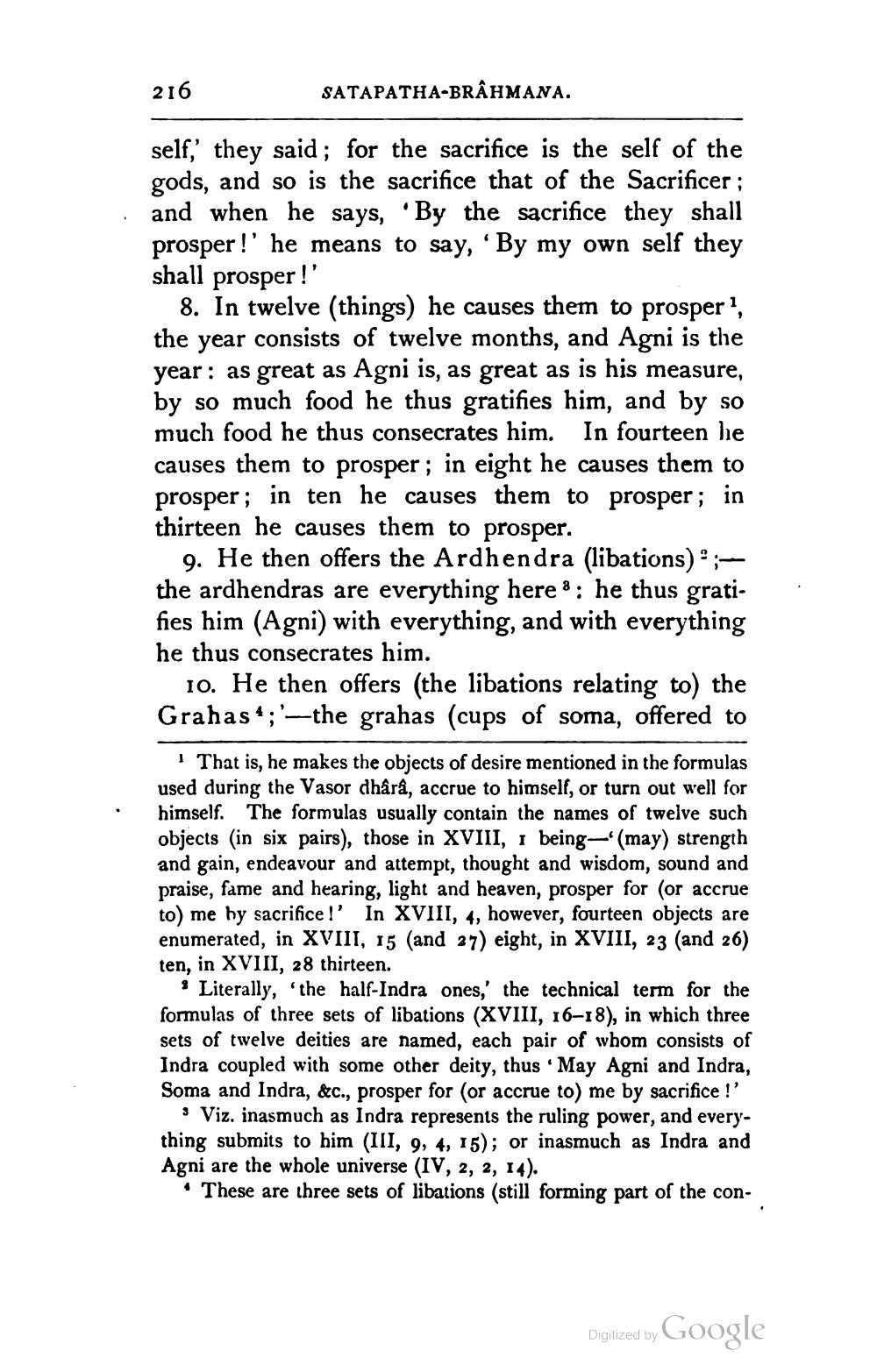________________
216
SATAPATHA-BRAHMANA.
self,' they said; for the sacrifice is the self of the gods, and so is the sacrifice that of the Sacrificer; and when he says, 'By the sacrifice they shall prosper!' he means to say, 'By my own self they shall prosper!'
8. In twelve (things) he causes them to prosper1, the year consists of twelve months, and Agni is the year: as great as Agni is, as great as is his measure, by so much food he thus gratifies him, and by so much food he thus consecrates him. In fourteen he causes them to prosper; in eight he causes them to prosper; in ten he causes them to prosper; in thirteen he causes them to prosper.
9. He then offers the Ardhendra (libations);the ardhendras are everything here: he thus gratifies him (Agni) with everything, and with everything he thus consecrates him.
10. He then offers (the libations relating to) the Grahas; the grahas (cups of soma, offered to
That is, he makes the objects of desire mentioned in the formulas used during the Vasor dhârâ, accrue to himself, or turn out well for himself. The formulas usually contain the names of twelve such objects (in six pairs), those in XVIII, 1 being-(may) strength and gain, endeavour and attempt, thought and wisdom, sound and praise, fame and hearing, light and heaven, prosper for (or accrue to) me by sacrifice!' In XVIII, 4, however, fourteen objects are enumerated, in XVIII, 15 (and 27) eight, in XVIII, 23 (and 26) ten, in XVIII, 28 thirteen.
Literally, 'the half-Indra ones,' the technical term for the formulas of three sets of libations (XVIII, 16-18), in which three sets of twelve deities are named, each pair of whom consists of Indra coupled with some other deity, thus 'May Agni and Indra, Soma and Indra, &c., prosper for (or accrue to) me by sacrifice!'
Viz. inasmuch as Indra represents the ruling power, and everything submits to him (III, 9, 4, 15); or inasmuch as Indra and Agni are the whole universe (IV, 2, 2, 14).
These are three sets of libations (still forming part of the con
Digitized by
Google




